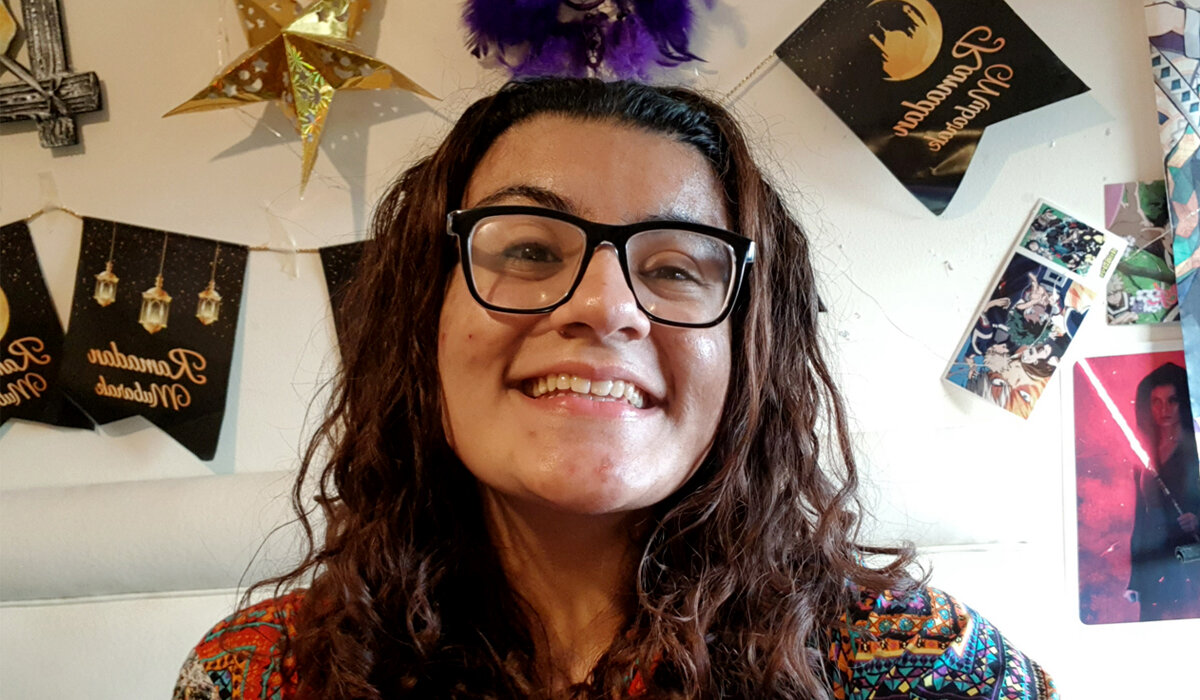
"I want to give a voice to people who are not often represented in pop culture."
Iqra Babar
- on representing BAME autistic people through her art
Stories from the Spectrum: Iqra Babar
Meet Iqra Babar, autistic woman, artist, and comic-book creator. Through her illustrations, Iqra explores her identity as an autistic woman of colour, and what that means to her. Her latest work of art is The Character Creation Zone, which you can delve into here.
Iqra chatted to us about her diagnosis, challenging autism stereotypes, and the inspiration behind her art. She also talked about being an autistic Muslim, and taking part in Ramadan during coronavirus…
When were you diagnosed as autistic?
I was diagnosed at 17-years-old. I received my diagnosis a month before I turned 18.
What is being autistic like for you?
I love being autistic, it’s part of my identity. Without it I don’t think I’d be the same person I am. Being autistic in a world that wasn’t made for me definitely makes it difficult for me to be authentic to who I am all the time though. All of the ableism and racism that comes with being an autistic woman of colour makes it exhausting. Discrimination is everywhere, and being an autistic WoC only doubles how much I’m prone to. But knowing that there are others like me and others advocating for equality and neurodiversity makes me feel a lot less alone. It’s also allowed me to surround myself with people who loved me for me regardless.
Finding out I was autistic gave me an answer to why I struggled with so many things neurotypical children found ‘normal’ or ‘easy’. It answered a lot of questions and internal turmoil. I finally had an answer to why I behaved the way I did, and why I had certain traits other people found ‘weird’. It gave me a sense of relief. It also prompted me to learn as much as I could about autism from other autistic people. Who knows autism better than autistic people?
We love your artwork on The Character Creation Zone. When did you start creating art and where do you draw inspiration from?
Thank you! I've always loved arts and crafts and making a big mess, but I was never really good at it as a kid (not that it ever stopped me from making crazy things!). I remember having this sudden urge brew up inside me to get better at drawing, so I made it my 2019 resolution to improve. It was an impulsive decision but I'm so glad that I went through with it, because I've been able to improve and grow in so many ways since then.
When creating my original characters, I definitely delve into my own life experiences a lot. I think it's important to be as raw as you can when telling a story and it serves as great inspiration. To me, realism is important when bringing a character or story to life, having details that people in real life can relate to or pick out. It makes the character feel all the more authentic.
As a Pakistani woman, the history of my culture and heritage is also incredibly awe-striking. It's so fascinating to read about folktales and myths and learn about creatures you would never typically see people creating art, or telling a story, from. My culture is rich with history and stories that deserve the spotlight as much as the next Western story.
Do you think being autistic influences your creative process?
Definitely. In fact, two of my original characters are autistic! Representation is extremely important to me and I want to be able to tell a story you wouldn't usually hear about. I want to be able to give a voice to communities that usually wouldn’t be given a chance in pop culture.
When I’m reading a comic or watching a TV show, for me to be able to connect to a character, there needs to be a sense of realism. This is what I try to achieve through my characters - picking out events from my life and re-telling them in a way that would resonate with other people. As an autistic woman of colour, I’m very familiar with the feeling of being under-represented (if represented at all) in pop culture. So, to counter this lack of diversity, I make sure to jam-pack my content with it!
To give an example, one of my original characters, Zari, is autistic and has ADHD like me. She has a lot of qualities that I have, such as impulsivity, RSD (rejection sensitive dysphoria) and having many special interests. Autistic people exist everywhere, including in fantasy-themed comics and artwork!
"I want to be able to give a voice to communities that usually wouldn’t be given a chance in pop culture."
I also have another autistic character, Aakashi. She differs from me however, as she is non-verbal. She’s also a black woman, and has different traits to Zari, but they’re both still autistic and valid!
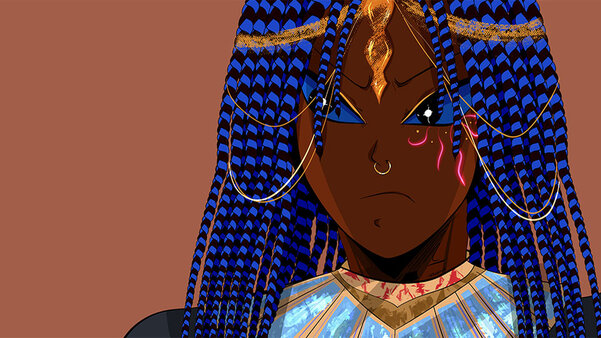
'Aakashi' by Iqra Babar
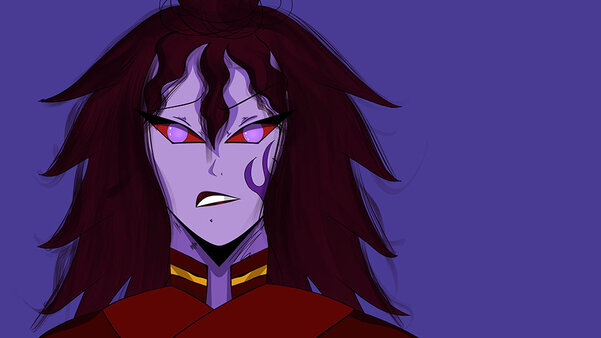
'Zarifa' by Iqra Babar
You mention your experience of being part of more than one minority group. Would you be able to talk more about that and what it means for you?
I love being an autistic, Muslim Pakistani woman. My identity in itself is so diverse, which I am really proud of! It does make it harder to live so freely however, with all of the stigma and discrimination that surrounds both autistic people and Muslims. Race and autism intersect a lot and talking about race in autism conversations is so important.
When people think of ‘autism’, a Muslim or a woman of colour would be the last person they would think of to be autistic. I think way the media portrays us is partly to blame for this. Being a female Pakistani autistic ADHD-er Muslim comes with a lot of stigma and ignorance within the Asian community. I am grateful to have an understanding and accepting family and to be able to be my authentic, unmasked self in my home environment, which I know a lot of autistic people don’t have the freedom to do. In many Black and Minority Ethnic households, neurodiversity and anything to do with mental health can often be seen as taboo, which differs our experiences from white autistic people, from this perspective.
Why do you think representing autistic people of all backgrounds is so important?
The world is full of so many different people, and it’s unfair that we barely get to see representation of other minority groups or any other neurotype outside of what we’re all too used to. Just like neurotypical people, autistic people are so diverse. We’re all different with our own sets of unique traits, but all still autistic!
At times, I think the media’s portrayal of autism can be inaccurate and unfair. It’s very frustrating to see autism only depicted through a white (and often savant) man, when in reality, autistic people are so incredibly diverse. It’s also frustrating not seeing these roles played by actually autistic people [We hope this is something that will improve, thanks to recent positive depictions of autism in TV programmes like The A Word and Hollyoaks. Travis George Smith (The A Word) and Talia Grant (Hollyoaks) are both autistic]. After all, who knows us better than us?
Misrepresentation causes stereotypes and stigmas to form, which is probably why people get so surprised if someone like me were to turn around and say that I’m autistic.
If you could destroy one myth about autism, what would it be?
Being autistic isn’t something that is exclusive to men or to Caucasian people. We are as diverse as our traits. Being from a certain faith or a certain background doesn’t make me “less autistic”. Autistic people come in all different shapes and sizes and come from so many different backgrounds and cultures. We’re not bound to any specific physical characteristic and it’s so important this is depicted! We’re a diverse community!
Are you working on any creative projects at the moment?
I am! I'm currently working on creating a webcomic called DARJIN. It's based on the characters from my piece in The Character Creation Zone. The main character, Zari is autistic and has ADHD like me! It follows the story of Zarifa Nasim, an aspiring carpet racer. The sudden murder of her sister, Kotori, causes a rift in her life and everything around her. Zari not only wants to gain the title of ‘Carpet Racer’ more than ever, but takes on an underhand operation her sister started.
I'm so unbelievably excited for this project, it's like a precious child to me that I'm so excited to share with everyone (and of course, it’s jam-packed with a ton of diversity!). I post new drawings of my characters for this universe on my Instagram at @iqradraws.
How are you coping with the current lockdown?
It's definitely overwhelming. It takes a lot of energy for me to be keeping up with everything that's happening and can be too much to cope with sometimes. I am keeping myself as distracted and as busy as I can, through my special interests - such as video games and drawing.
Even though I have more time to indulge in my special interests, I’ve found it a lot harder to be active as I find myself caged in my room a lot, so lockdown has me a little all over the place right now. I’m hopeful there will be positive change in the future.
How has your experience taking part in Ramadan been this year?
It’s definitely an experience I’m not used to, but I kept almost all of my fasts this year, which I’m really proud of! Despite the changes that I’ve had to adapt to due to lockdown, it’s made Ramadan easier since I didn’t need to be moving around too much. I could just sit in my room all day and do my own thing. I didn’t have to use lots of energy. On a usual day, I would get overwhelmed and fatigued while fasting, especially if I had a lot of work to do that day. I also tend to be hyper-aware of my sensory inputs when fasting.
Personally, I eat a lot at sunrise so I don’t feel the impact of fasting throughout the day, which makes it easier for me to keep fasts. I also tend to forget I’m fasting halfway through the day, since I’m usually hyper-fixated on something. This definitely works as a positive for me as I then don’t think about it a lot. I really enjoy eating dates to open my fast as I find it really satisfying and rewarding. I’m pretty confident that I’ll be able to fast just as well as I have this year in the future.
Watch Iqra on Spectrum Live
Join us for Spectrum Live 'Life stories' on Thursday 5 November, where you can watch Iqra chat more about her autism diagnosis, her artwork, and more...
Find out more, and catch up on all our previous episodes by following the link below.
Similar stories
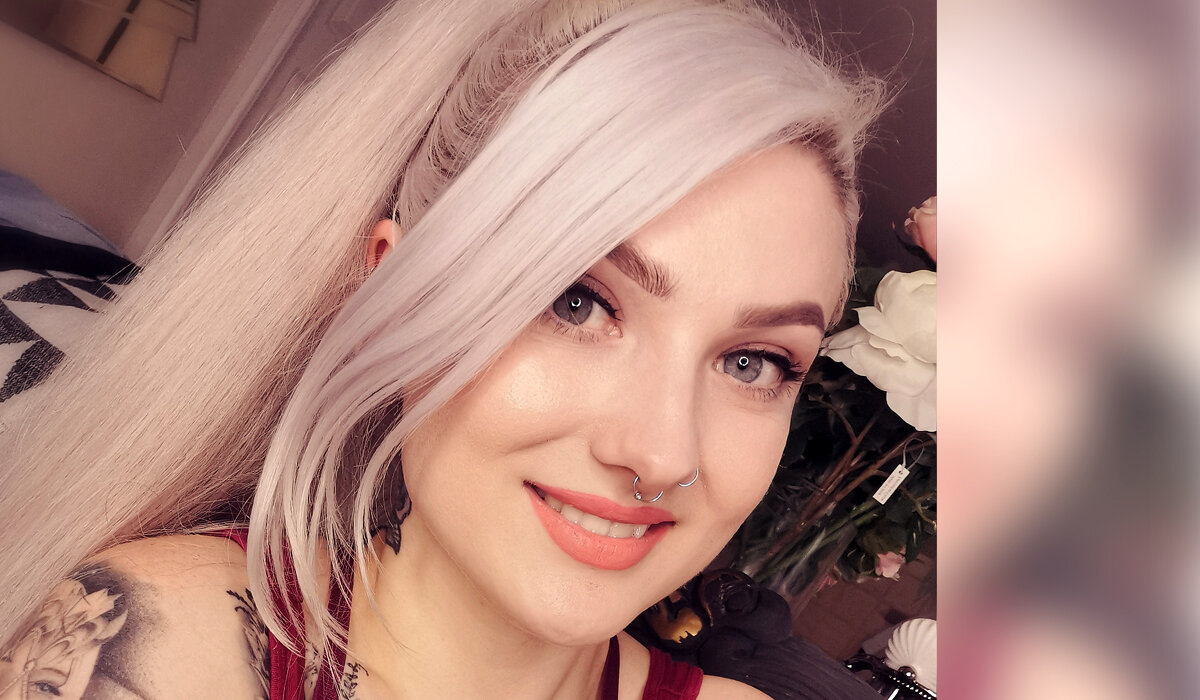
"It's tough living in a world that wasn't built with autism in mind, but when I'm tattooing or being creative I'm lost in my own world."
Charl Davies
- on autism, creativity, and expressing herself through art
Read more
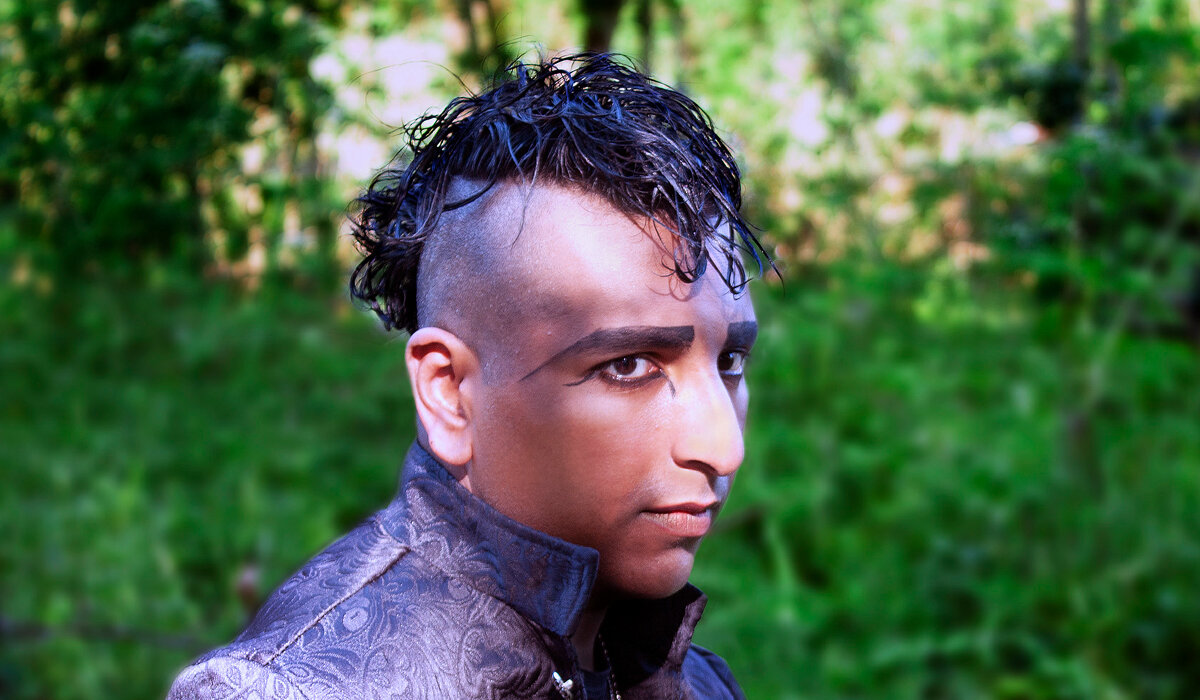
"I know what colour or shape I'm feeling, but I often struggle to express myself with words."
Patrick Samuel
- on expressing himself through art and music
Read more

The Spectrum magazine
Explore one of the UK's largest collections of autistic art, poetry, and prose. The Spectrum magazine is created by and for autistic people, and is available both online and in print.
Read the Spectrum





You are not alone
Join the community
Our online community is a place for autistic people and their families to meet like-minded people and share their experiences.
Join today